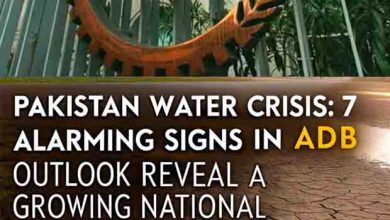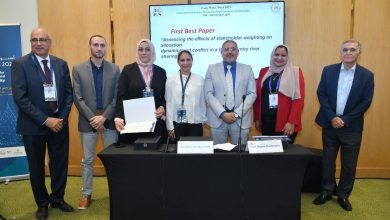Concerns voiced over water shortages
ISLAMABAD: Serious concern at the water shortage in the country echoed during the meeting of National Assembly Standing Committee on Water Resources held on Wednesday under the chairmanship of Nawab Yousaf Talpur. The Committee reviewed water scarcity and continued conflict between Sindh-Punjab as a Special Committee led by Khalid Magsi also failed to present any solution to the conflict on water distribution and losses.
The Committee was informed by IRSA officials that water scarcity in the country is 27% based on figures estimated by the IRSA.
However, Mohsin Leghari, Member National Assembly, and former Irrigation Minister, Punjab claimed that water shortage in the country is now over 27 per cent.
Another Member Standing Committee Hussain Tariq stated Sindh and Balochistan are getting less water compared to their share.
There has also been a dispute between Sindh and Balochistan since long as the latter has accused the former of stealing their share of water.
Khalid Magsi, who conducted an inquiry into water theft from Taunsa barrage to Sukkur barrage, has held that Sindh is not receiving its share at Sukkur which implies that some water is missing from Taunsa to Sukkur.
“In two provinces, there is a lack of confidence on the issue of water,” said Khalid Magsi, adding that Sindh will claim that it is not getting due share while Punjab will say that they are releasing due share of water to Sindh.
He maintained that whenever excess water is available in Sindh, the Left Bank gets more water.
Munawar Taplur, Member National Assembly from Sindh argued that Sindh is getting less water than its share, so it is a matter of concern. Sabir Qaimkhani remarked that sometimes Sindh dries up and sometimes drowns due to floods and heavy rains.
The Committee decided to examine the Sindh-Punjab water dispute in detail in the next meeting.
According an official statement, dewatering of flood water from Sindh and Balochistan has been completed. The Standing Committee was apprised that dewatering of flood water was the duty of National Disaster Management Authority (NDMA). However, the provincial departments and NDMA have jointly completed the task of dewatering. NDMA paid Rs. 250/- million to relevant provincial department of Balochistan. So, the dewatering in the Naseerabad Division was completed.
Similarly, 159 dewatering pumps were provided to relevant provincial department of Sindh. Hence, 99% of dewatering has been completed in the province. However, in few lowlands some water is still there. The Standing Committee was informed that during the current year the Advisory Committee of Indus River System Authority (IRSA) predicted for 27% shortage of water. But actually 20% more water shortage took place as of the predicted water. So, the shortage of the water is proportionately distributed among different federating units.
The Chairman of the Standing Committee, Nawab Muhammad Yousuf Talpur, directed that Water Apportionment Accord 1991 be acted upon in letter and spirit. He further declared that any mistake, laziness or violation of the law shall not be tolerated.
The Standing Committee was informed that due to blockage in the water discharge tunnel of Neelum-Jhelum Hydro Power Project the project was closed in 2022. Due to the blockage and closure of the project a loss of billions of rupees has been incurred. However, the repair of maintenance work is rapidly in progress and more than 75% of the work has been completed. However, rest of the work shall be completed in eight weeks and thereafter the project including power generation shall be started.
Copyright Business Recorder, 2023







